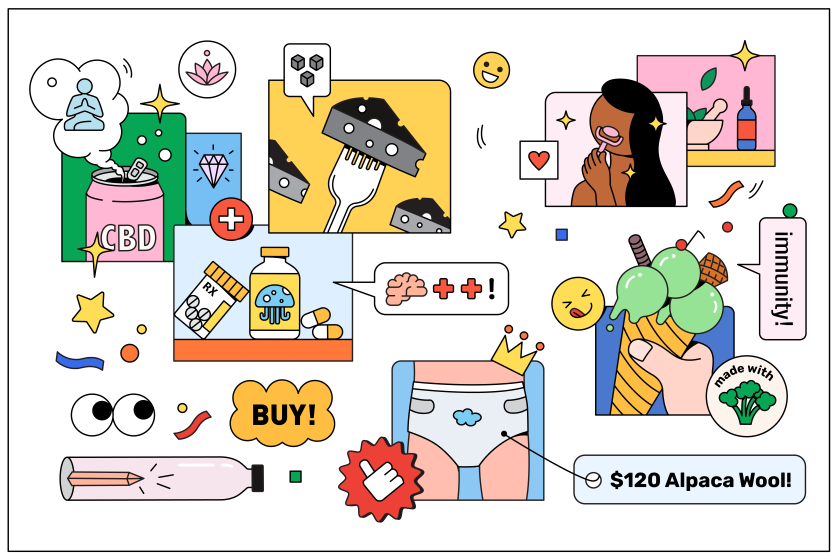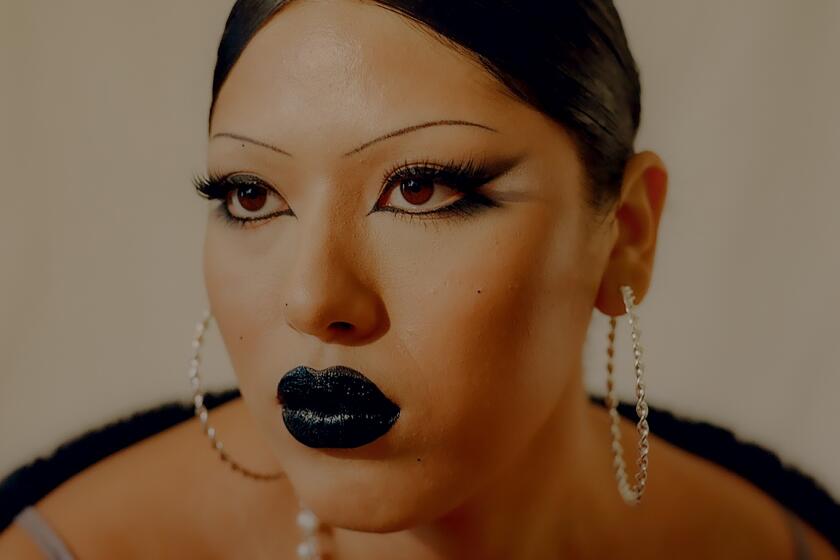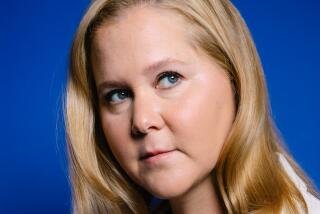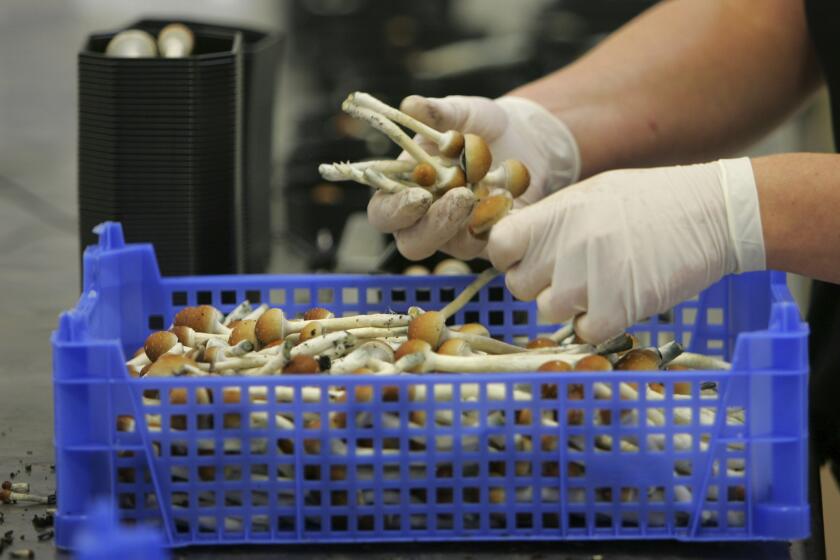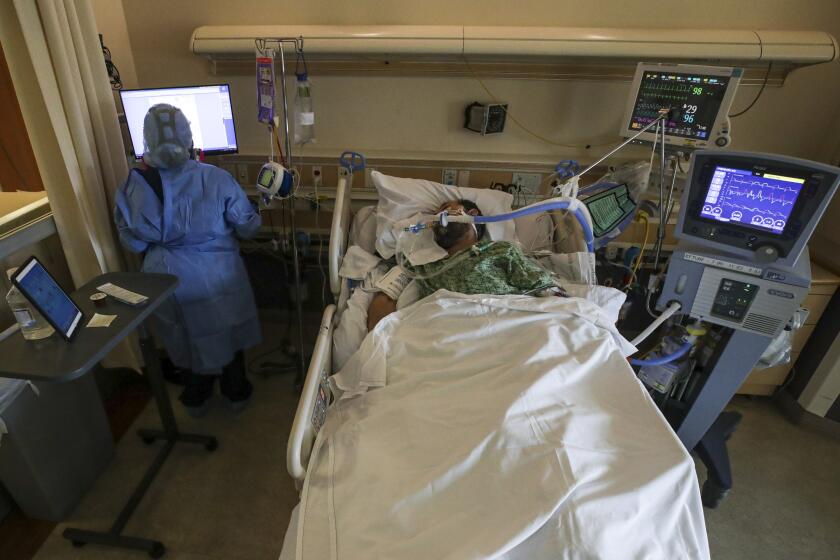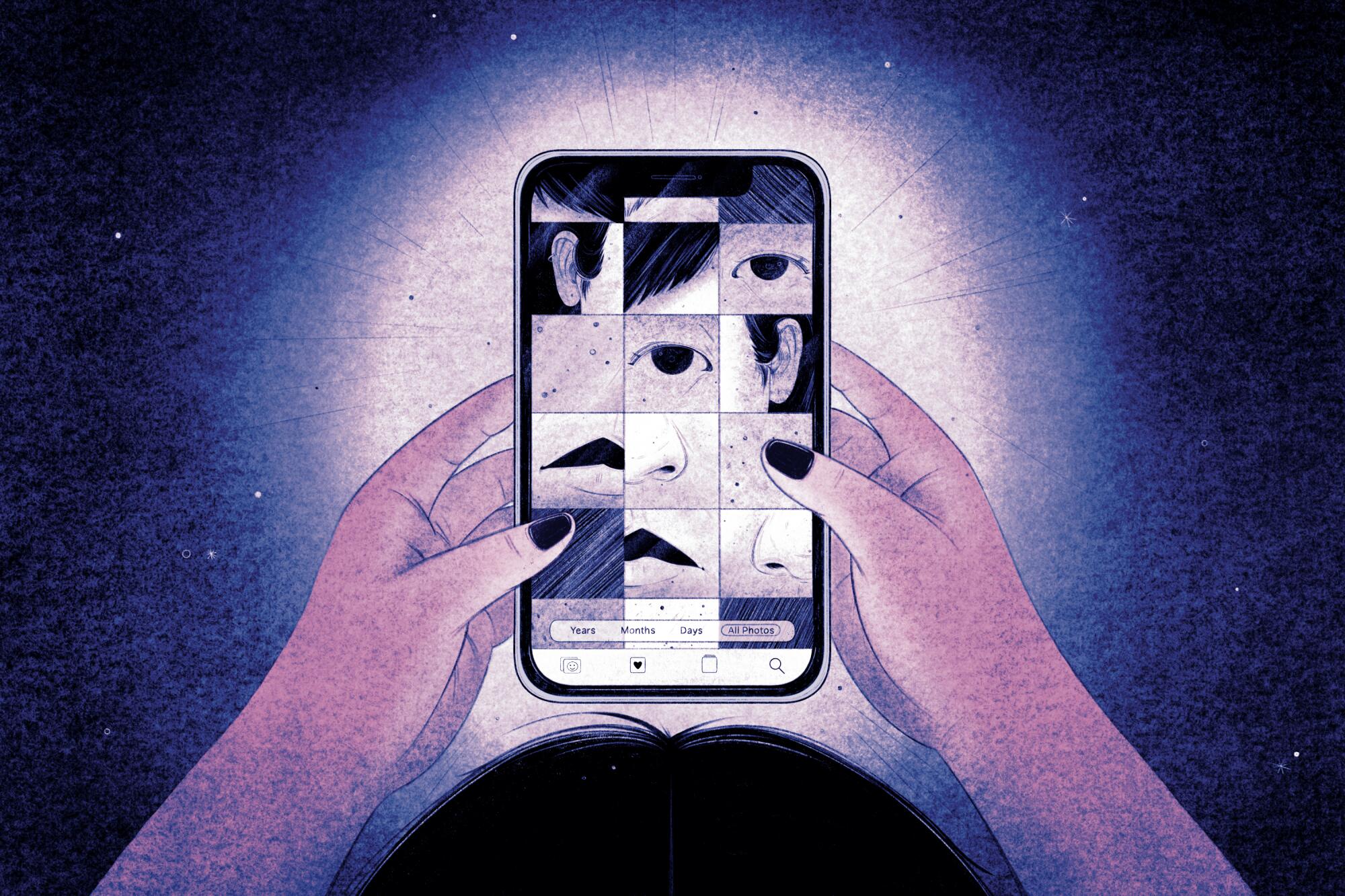
I have no idea how to stop looking at, loathing and critiquing every nook and cranny of my face. The last three years of nonstop, stare-at-yourself screen time have not helped. I Zoom and then zoom into my reflection only to be confronted with hooded eyes with puffy bags, what appears to be aging skin (did I have those wrinkles an hour ago?) and grooved lines above my top lip, which is a new one.
Rationally, I know that I am what society considers generally attractive and that staring down my flaws won’t make them disappear. Yet, I can’t stop. (When there’s no Zoom, there’s my car rearview mirror to contend with, the No. 1 offender — especially with that L.A. traffic.)
According to neuroscientist and psychiatrist Dr. Dave Rabin, who founded the Apollo Clinic, where he specializes in treatment-resistant mental health disorders, I have facial dysmorphia. It’s similar to obsessive-compulsive disorder in that it involves a preoccupation or obsession with “defects” in one’s appearance that are out of proportion to the perceived defect.
Theories suggest that one or multiple past traumas demeaning our sense of self are at the root of this pathological self-loathing thought process. For me, the COVID-19 pandemic unleashed an unprecedented siege of self-criticism that began when I was an awkward 13-year-old with a mouth full of metal and plain-Jane brown hair. While some people perfected their sourdough or TikToks during the pandemic, I took everything out on my face, obsessively picking apart my appearance to self-soothe through the months of blinding sameness. Beating up on my face was the way I broke up the day, the way I sought comfort from the existential unknowns. It was the way I felt seen. Some call it facial dysmorphia. I think it’s better explained as Face Hate.
CBD butt balm, charcoal cheese and other ridiculous wellness products are losing their luster as Gen Z shoppers exhibit a more critical eye.
Turns out, I am not the only one with Face Hate. Around 5 to 10 million people in the United States have body dysmorphic disorder, which includes the face. As you might expect, this number is growing as our screen time increases. Algorithmic face filters and inescapable screens reinforce narrowing beauty standards that have us relentlessly chasing “Instagram Face,” an aesthetic that many of social media’s beautifying filters mimic to present a young face with poreless skin; plump, high cheekbones; and fox-like eyes.
“People are 100% more obsessed with their faces than ever,” said Beverly Hills-based aesthetic physician Dr. Rahi Sarbaziha, who also attributes our increased facial fixation to the growing aesthetic industry and technological advancements in treatments.
All this Face Hate is not only driving dysmorphia, but dysphoria within the collective. A February CDC report reveals that 57% of high school girls reported experiencing “persistent feelings of sadness or hopelessness in the past year,” up from 36% in 2011, with social media playing a key factor in crushing their self-esteem. It doesn’t take a doctor to tell us we need a cure. How do we rise above our self-loathing to make peace with our reflection?
Here’s how to stop the Face Hate madness.
1. Give yourself a break. You’re not alone.
According to a 2021 study published by the International Journal of Women’s Dermatology that surveyed more than 7,000 participants across the U.S., “increased time spent videoconferencing, using social media and using filters on these platforms during the pandemic has led to worsening self-perception and mental health.” That’s putting it lightly. But, while feeling less alone with your Face Hate might take the edge off, you still may be cringing at your reflection. So let’s get more practical.
2. For the love of God, turn off self-view.
This means stop staring at yourself on Zoom, in the mirror or in any other sneaky places that transform you into your worst critic. There’s no harm in taking a selfie because you’re “feeling yourself,” but too much time spent evaluating your reflection can take on a life of its own.
“Neurons that fire together, wire together,” Rabin explains. “The more we practice thinking about ourselves as defective, the more inadequate we feel — and this connection gets stronger every time we go down that path.” Yes, indeed, the more we hate on ourselves, the more we hate ourselves.
Beverly Hills-based double board-certified plastic surgeon Dr. Ben Talei suggests, “Just don’t look at yourself — that’s how I live my life or else I’d go crazy.” Easier said than done, but the sentiment stands: less looking-at-your-own-face time, people. But when you do, give yourself a high-five, because according to motivational speaker andauthor Mel Robbins, high-fiving your own reflection silences your internal critic.
Exploring the idea of post-traumatic growth and what it can — and can’t — do for us with researcher Eranda Jayawickreme.
3. Don’t compare and despair.
“Our lives are increasingly virtual, so we have fewer inputs for what a real human face looks like,” says Jessica DeFino, former beauty writer and founder of The Unpublishable, a Substack newsletter with more than 70,000 subscribers that exposes the untold secrets of the beauty industry.
“With filters, we’re constantly inundated with digitally altered images to measure ourselves against,” she explains. “Beauty standards are getting more demanding, dehumanizing and impossible to maintain.” The takeaway: Don’t compare yourself to your filtered self; it’s a dead end that makes you feel less than amazing. But if you get stuck, research says self-compassion (i.e., practicing a mindfulness meditation) makes you more accepting of yourself and therefore less susceptible to the damaging effects of the filter factor.
4. Embrace a mirror work practice.
Mirror work, a new-age practice made popular by self-love pioneer Louise Hay, was designed to cultivate self-compassion. It requires just a bit of time, a mirror and some positive affirmations — and a 2017 study found it to be an impactful self-compassion exercise that soothes the parasympathetic nervous system.
So grab some paper; write down affirmations that focus on who you are as a person, not what you look like; put on your headphones with some soul-stirring tunes; and gaze deeply into your own eyes in a mirror while you recite the affirmations. It’s as awkward as it sounds, but it actually reprograms the critical eye by creating new neural pathways, or thought patterns, that improve your relationship to your reflection. It’s helped me see myself with softer eyes, so give it a go.
5. Ditch the obsession, embrace healthy worship.
For DeFino, who used to work for the Kardashians, being in an environment where you’re surrounded by enhanced faces was just too much. “L.A., as you are aware, is kind of a mindf—,” she says, “and makes you feel like your [face] doesn’t measure up.”
One way to cope without moving to another town is to think like a facialist and indulge yourself with a skin care routine you’re excited about. Wash, tone, moisturize, mask or gua sha with some rose-infused face oil while you’re Netflix-ing. Whatever makes you feel most confident and glowy is A-OK, just as long as you feel cared for.
6. Don’t hate, decorate.
“We have the ability now to take what we were born with and make it look a little bit better,” Sarbaziha tells me. Work your face to your comfort level: Experiment with a new haircut, face-framing highlights or a shade of lipstick that lights you up. Have fun with big earrings or bold glasses. Accessorize yourself like never before, and, maybe, if neurotoxins are your thing, invest in some Botox. The goal here is to hate less, then like, and then maybe even love what you see, so — within reason — do what you have to do.
I still haven’t dealt with everything we’ve lived within the past two years, and I am beginning to distrust my memory of it. Fittingly, the new space above my eyes gives me a look of wonder.
7. Remember: Intention is everything.
You cannot fix your insides with the outsides, so don’t forget to do things that make your heart smile. Whether you adopt a new hobby or pet, volunteer, practice daily gratitude or engage with a new community, it’s paramount to get outside of your head, which will take your mind off your face — and that’s a win.
8. Feel your feels.
Facial dysmorphia is a trauma response. For me, it became a coping mechanism for unchanneled creativity and unexpressed emotions, namely anger and rage for being isolated during the pandemic. If you’re going through something similar, make sure you allow yourself the space and time to slow down, breathe and really feel what needs to be felt. Practices like beach walks, breath work, dancing or journaling tend to activate and unleash intense emotions that often get suppressed. You might see yourself a little differently after releasing emotions you were most likely turning in on yourself.
9. Don’t be afraid to ask for help.
Dysmorphia is notoriously hard to treat, so don’t go it alone. Dr. Eda Gorbis, founder of Westwood Institute for Anxiety Disorders and a BDD treatment expert, says it’s time to seek help if you’re unable to work, date or attend social occasions. Coincidentally, dysmorphia sufferers, who are usually above average in appearance, sometimes get in car accidents because they’re constantly looking in their car rearview mirror. Cognitive behavioral therapy, which includes exposure, journaling and mindfulness practices, is typically the first line of defense for dysmorphia. Gorbis also developed a “crooked mirror” that exaggerates patients’ distortions, which externalizes the distorted self-image.
“If you can change despair to laughter,” explains Gorbis, “you turn the tables.”
More to Read
Sign up for our L.A. Times Plants newsletter
At the start of each month, get a roundup of upcoming plant-related activities and events in Southern California, along with links to tips and articles you may have missed.
You may occasionally receive promotional content from the Los Angeles Times.
